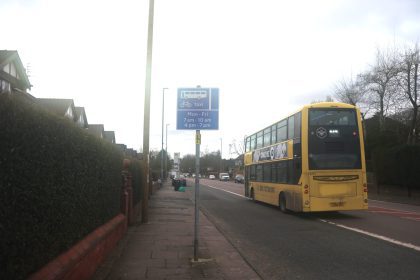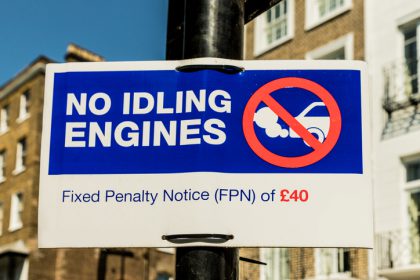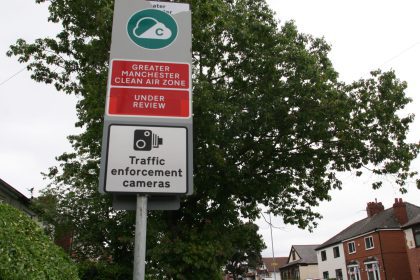With taxi drivers struggling to afford vehicles that meet new emissions regulations – and forking out hundreds of pounds to fix damage caused by potholes – it is no surprise that many cabbies in one city have had enough.
Taxi drivers in Glasgow say they cannot afford to replace their cars with low-emissions vehicles. Even with grants to help purchase the vehicles, they say that with fares set at the current levels, buying a new vehicle is unsustainable and drivers are considering their options, including leaving the trade.
And they feel the situation surrounding the city-centre Low Emissions Zone scheme – which was introduced on June 1 last year to keep older, more-polluting vehicles out of the area – has been made worse by the state of the roads, which is damaging taxis.
With one driver having to replace five tyres in four months, cabbies often face having to pay for repairs themselves, unless they claim compensation from the council. With one driver having to replace five tyres in four months, cabbies often face having to pay for repairs themselves, unless they claim compensation from the council. Claiming on their own taxi insurance could affect their no-claims bonus and premiums when it is time to renew. Also, the cost of a new tyre may be less than the excess drivers have to pay towards each claim
Cutting pollution
When the LEZ was introduced, taxi and PHV drivers were granted a 12-month extension to either retrofit their cabs or replace them with compliant vehicles. But as that deadline approaches, drivers are realising they cannot afford to replace their cabs and retiring might be the better option.
The Scottish Sun says the situation has become so severe that Unite Glasgow (Hackney) Taxi Branch understands more than 600 taxi drivers could go in less than a year.
Taxi veteran Paul L told Taxi Point: “Traditional black cabs in Glasgow and Edinburgh are at breaking point.
“The final Low Emission Zone date is set for June 1 and it’s looking like as many as a third of hackneys will go off the road.
“Although LEZ is a pinch point, a breaking point, there is a systemic issue for the ongoing years which will further reduce hackneys’ presence.
“The issue is that of the price of new vehicles, our tariffs and customer base simply can’t support the price of these new vehicles. I’m sure this is the case in many other cities around the UK.
“Tariff increases won’t help this, it will simply reduce the customer base further. Yes, some will buy these new cabs at exorbitant bankruptcy-inducing prices, but this will only result in having to increase working hours.”
Drivers’ dilemma
Unite Branch secretary Steven Grant told The Scottish Sun: “The average age of Glasgow black cab drivers is 57. If retrofitting your vehicle is not an option, it is a choice between sourcing an alternative vehicle or retirement.
“A new cab would cost around £75,000 which is not feasible if you are approaching the end of your career in the trade. In terms of used taxis, there are simply none available, with the UK market dysfunctional since the pandemic.”
Glasgow City Council insists the LEZ is a “crucial public health measure” and is working. The council points out that it did what it could to help and extended the maximum age of taxis, as well as offered funding for retrofits.
Meanwhile, taxi drivers – unhappy about the state of the city’s roads – held a go-slow protest outside the council chambers and general secretary of the Scottish Private Hire Association Eddie Grice told the BBC the city’s roads are a “nightmare”.
“It’s been going on that long, the damage being caused to our cars is happening on previously reported potholes.
“It costs a fortune. I went through five tyres since the start of December. I’ve lost a drop link. I’ve got bits of my car sitting in here.”
A city council spokesman said: “Our responsibility is to ensure we have in place an appropriate system of road safety inspections and repairs that tackles the most dangerous faults as a matter of priority.
“We always seek to undertake first-time permanent repairs wherever possible and we currently have four crews dedicated to repairing potholes on a daily basis.”




